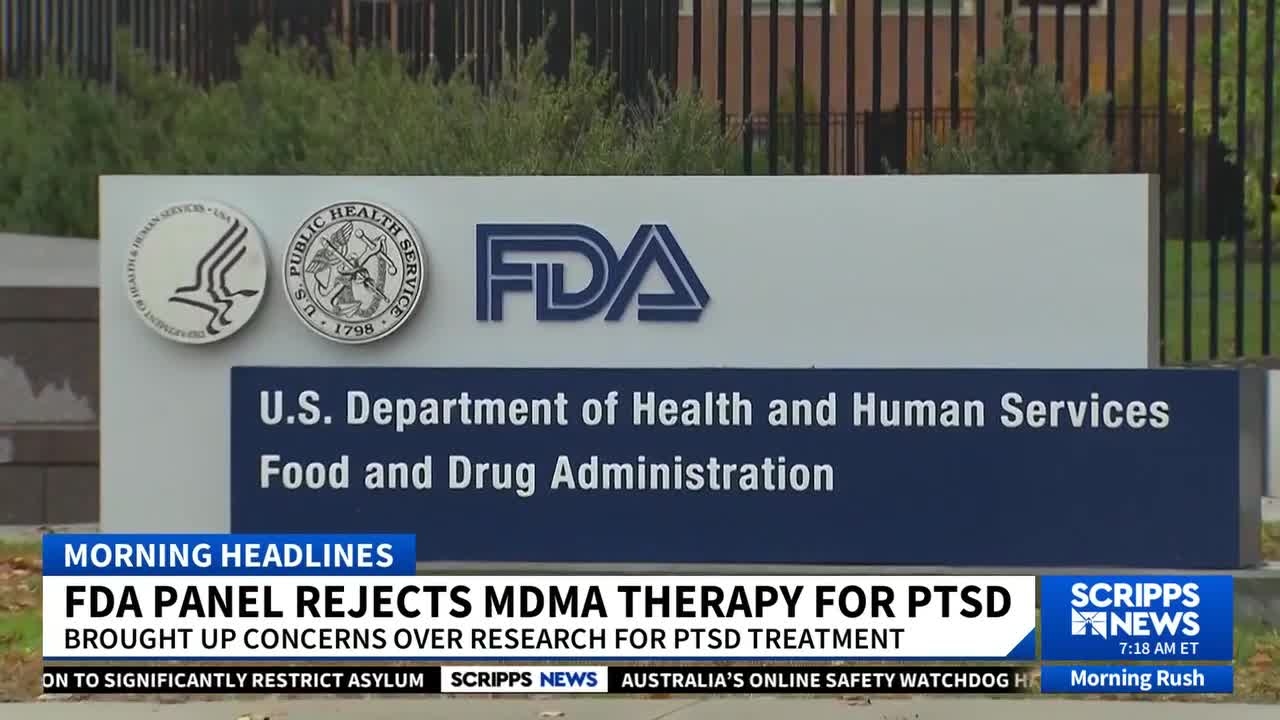Psychedelic drug MDMA rejected as treatment for PTSD despite veterans' support

The Food and Drug Administration on Friday rejected a California drug company's request to market the psychedelic drug MDMA combined with talk therapy as a treatment for post-traumatic stress disorder.
The federal drug regulator told San Jose, California-based Lykos Therapeutics it completed a review of the company's application but would not approve MDMA, also known as ecstasy or molly, as a treatment for PTSD.
The decision was closely watched by academics, private companies and investors who've poured millions into efforts to develop psychedelic drugs as mental health treatments. The company's application, granted priority review by the FDA, had been championed by military veterans desperate for a new treatment for post-traumatic stress disorder amid stubbornly high suicide rates.
The federal regulator requested Lykos conduct another advanced-stage clinical study on the safety and effectiveness of MDMA, or midomafetamine.
"The FDA request for another study is deeply disappointing, not just for all those who dedicated their lives to this pioneering effort, but principally for the millions of Americans with PTSD, along with their loved ones, who have not seen any new treatment options in over two decades," said Amy Emerson, CEO of Lykos Therapeutics.
Emerson said completing another advanced, "phase three" study would take several years.
Lykos had to overcome questions raised by outside experts on the quality of the research.
In June, the FDA's Psychopharmacologic Drugs Advisory Committeevoted 9-2 against MDMA as an effective treatment for PTSD patients, and 10-1 that the drug's benefits do not outweigh the risks. During the advisory panel's discussion, members acknowledged the need for a new PTSD treatment but raised questions about the company's data and study design.
Emerson said the company thinks many of the issues raised by the FDA and its advisory committee "can be addressed with existing data, post-approval requirements or through reference to the scientific literature."
Lykos said it will meet with FDA staff to ask the agency to reconsider its decision. It also plans to seek recommendations on possibly resubmitting for approval.
Earlier studies showed about 86% of participants who received the MDMA treatment along with therapy reported reduced PTSD symptoms, and 71% improved to such a degree they no longer met the diagnostic criteria for PTSD. Among those in the placebo group, 48% no longer met PTSD criteria.
Last week, members of Congress expressed support for the new treatment.
In an Aug. 2 letter to President Joe Biden, U.S. Rep. Jack Bergman, a Michigan Republican, and a bipartisan group of 60 House members urged a fair review of the therapy.
In the letter, the Bergman and other House members said the FDA hasn't approved a new treatment for PTSD in 25 years. "This astounding lack of innovation has undoubtedly contributed to our rising veteran suicide rates over the past two decades," the letter said.
Earlier this year, the Institute for Clinical and Economic Review, an independent nonprofit that reviews prescription drugs, issued a report questioning aspects of the clinical trials.